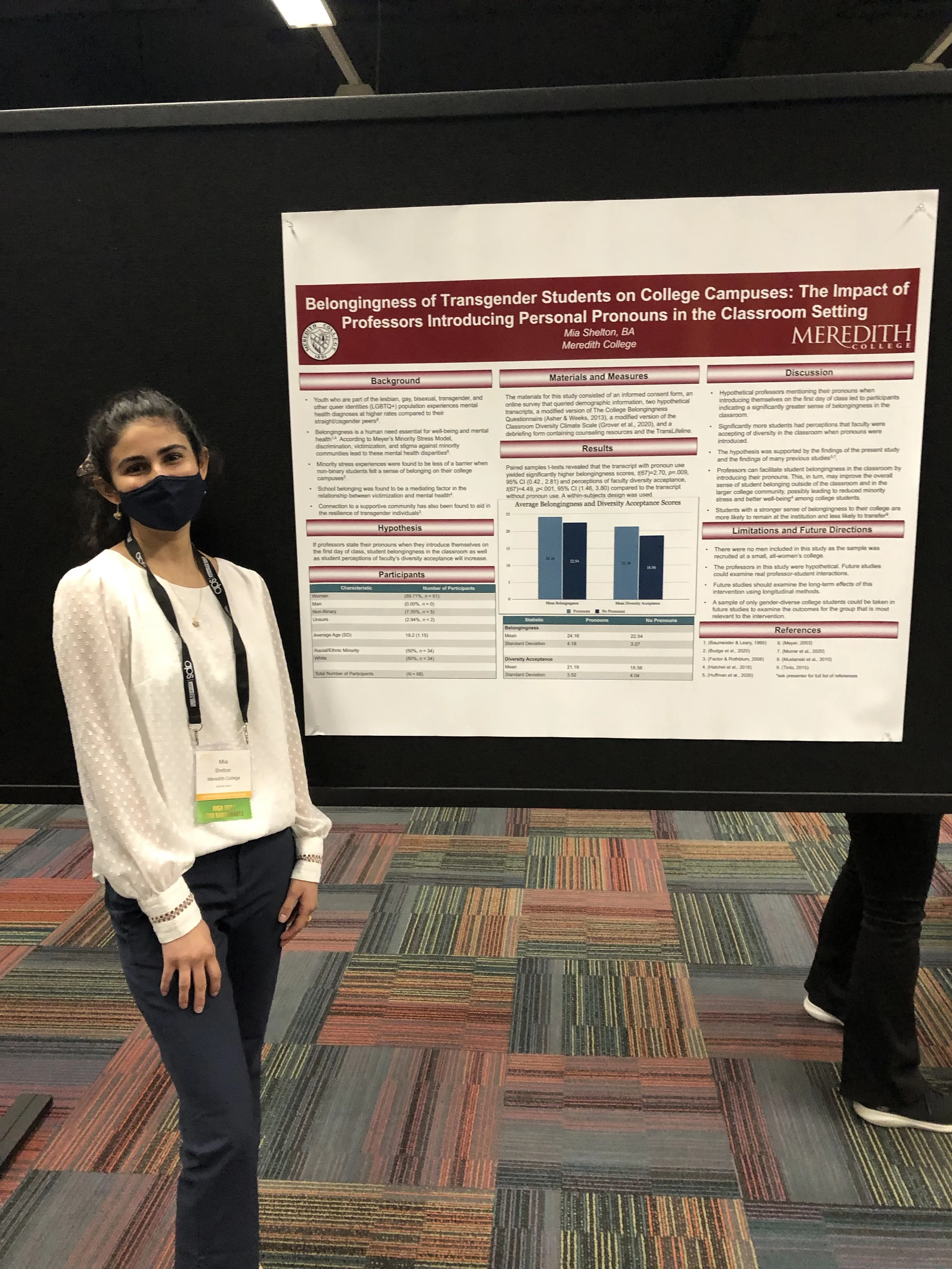Belongingness of Transgender Students on College Campuses: The Impact of Professors Introducing Personal Pronouns in the Classroom Setting
Presenting my research poster at Association for the Psychological Sciences Conference 2022 in Chicago.
Abstract
Belongingness is a basic human need essential for well-being and mental health (Baumeister & Leary, 1995; Hatchel et al., 2018b). Belongingness requires that people feel like a necessary part of their environment (Asher & Weeks, 2013). People in minority communities are vulnerable to lower belongingness compared to their peers in majority groups, and this is particularly true for members of the gender-diverse community (Valentine & Shipherd, 2018). The present study examined the impact of professors including their pronouns in their course introductions on students’ sense of classroom belonging and perceptions of faculty diversity acceptance. Participants (N=68) from a small women’s college were recruited to complete an online survey consisting of two transcripts of a hypothetical professor introducing herself: one included her pronouns and invited students to share theirs, while the other did not mention pronouns. After reading each transcript, participants completed the College Belongingness Questionnaire (Asher & Weeks, 2013) and a modified version of the Classroom Diversity Climate Scale (Grover et al., 2020). Paired samples t-tests revealed that the transcript with pronoun use yielded significantly higher belongingness scores, t(67)=2.70, p=.009, and perceptions of faculty diversity acceptance, t(67)=4.49, p<.001, compared to the transcript without pronoun use. Findings indicate that faculty introducing their personal pronouns and prompting students to do the same can increase belongingness among students in the classroom and student perceptions of the faculty member as accepting of diversity. This intervention is easy to implement and could improve the well-being and retention of college students.
